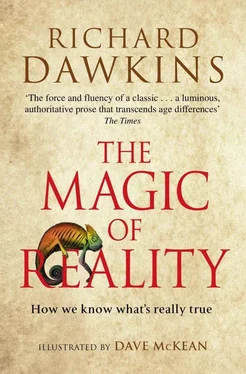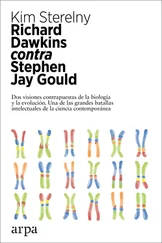Lots of myths talk about a conflict between good gods and bad gods (or devils). The bad gods are responsible for the bad things that happen in the world. Or there may be a single spirit of evil, called the Devil or something similar, who fights with the good god or gods. If only there wasn’t this tussle between devils and gods, or good gods and bad gods, bad things wouldn’t happen.
Why do bad things happen really ?
Why does anything happen? That’s a complicated question to answer, but it is a more sensible question than ‘Why do bad things happen?’ This is because there is no reason to single out bad things for special attention unless bad things happen more often than we would expect them to, by chance; or unless we think there should be a kind of natural justice, which would mean that bad things should only happen to bad people.
Do bad things happen more often than we ought to expect by chance alone? If so, then we really do have something to explain. You may have heard people refer jokingly to ‘Murphy’s Law’, sometimes called ‘Sod’s Law’. This states: ‘If you drop a piece of toast and marmalade on the floor, it always lands marmalade side down.’ Or, more generally: ‘If a thing can go wrong, it will.’ People often joke about this, but at times you get the feeling they think it is more than a joke. They really do seem to believe the world is out to get them.
I do a certain amount of filming for television documentaries, and one of the things that can go wrong in filming ‘on location’ is unwanted noise. When an aircraft drones in the distance, you have to stop filming and wait for it to go, and this can be extremely irritating. Costume dramas of life in earlier centuries are ruined by even a trace of aircraft noise. Film people have a superstition that aircraft deliberately choose moments when silence is most important to fly overhead, and they invoke Sod’s Law.
Recently, a film crew I was working with chose a location where we felt sure there should be a minimum of noise, a huge empty meadow near Oxford. We arrived early in the morning to make doubly sure of peace and quiet – only to discover, when we arrived, a lone Scotsman practising the bagpipes (perhaps banished from the house by his wife). ‘Sod’s Law!’ we all proclaimed. The truth, of course, is that there is noise going on most of the time, but we only notice it when it is an irritation, as when it interferes with filming. There is a bias in our likelihood of noticing annoyance, and this makes us think the world is out to annoy us deliberately.
In the case of the toast, it wouldn’t be surprising to find that it really does fall marmalade side down more often than not, because tables are not very high, the toast starts marmalade side up and there is usually time for one half-rotation before it hits the ground. But the toast example is just a colourful way to express the gloomy idea that ‘if a thing can go wrong it will.’
Perhaps this would be a better example of Sod’s Law: ‘When you toss a coin, the more strongly you want heads, the more likely it is to come up tails.’ That, at least, is the pessimistic view. There are optimists who think that the more you want heads, the more likely the coin is to come up heads. Perhaps we could call that ‘Pollyanna’s Law’ – the optimistic belief that things usually turn out for the good. Or it could be called ‘Pangloss’s Law’, after a character invented by the great French writer Voltaire. His ‘Dr Pangloss’ thought that ‘All is for the best in this best of all possible worlds.’
When you put it like that, you can quickly see that Sod’s Law and Pollyanna’s Law are both nonsense. Coins, and slices of toast, have no way of knowing the strength of your desires, and no desire of their own to thwart them – or fulfil them. Also, what is a bad thing for one person may be a good thing for another. Rival tennis players may both pray fervently for victory, but one has to lose! There is no special reason to ask, ‘Why do bad things happen?’ Or, for that matter, ‘Why do good things happen?’ The real question underlying both is the more general question: ‘Why does anything happen?’
People sometimes say, ‘Everything happens for a reason.’ In one sense this is true. Everything does happen for a reason – which is to say that events have causes, and the cause always comes before the event. Tsunamis happen because of undersea earthquakes, and earthquakes happen because of shifts in the earth’s tectonic plates, as we saw in Chapter 10. That is the true sense in which ‘everything happens for a reason’, the sense in which ‘reason’ means ‘past cause’. But people sometimes use reason in a very different sense, to mean something like ‘purpose’. They will say something like ‘The tsunami was a punishment for our sins’ or ‘The reason for the tsunami was to destroy the strip clubs and discos and bars and other sinful places.’ It is amazing how often people resort to this kind of nonsense.
Maybe it is a hangover from childhood. Child psychologists have shown that very young children, when asked why certain rocks are pointy, reject scientific causes as an explanation and prefer the answer: ‘So that animals can scratch themselves when they get itchy.’ Most children grow out of that kind of explanation for the pointy rocks. But quite a lot of adults seem unable to shake off the same kind of explanation when it comes to major misfortunes like earthquakes, or good fortune such as lucky escapes from earthquakes.
What about ‘bad luck’? Is there such a thing as bad luck, or indeed good luck? Are some people luckier than others? People sometimes talk of a ‘run’ of bad luck. Or they will say, ‘So many bad things have happened to me lately, I’m due for a piece of really good luck.’ Or they may say, ‘So-and-so is such an unlucky person, things always seem to turn out badly for her.’
‘I’m due for a piece of good luck’ is an example of a widespread misunderstanding of the ‘Law of Averages’. In the game of cricket, it often makes a big difference which team bats first. The two captains toss a coin to decide who gets the advantage, and each team’s supporters very much hope their captain will win the toss. Before a recent match between India and Sri Lanka, a Yahoo web page posed the question:
‘Will Dhoni [the Indian captain] be lucky once again with the toss?’
Of the answers they received, the following was chosen as ‘Best Answer’:
‘I firmly believe in the law of averages, so my bet is on Sangakkara [the Sri Lanka captain] being lucky and winning the much hyped toss.’
Can you see what rubbish this is? In a series of previous matches, Dhoni had won the toss every time. Coins are supposed to be unbiased. So the misunderstood ‘Law of Averages’ ought to see to it that Dhoni, having been lucky so far, should now lose the toss, to redress the balance . Another way to put this would be to say that it was now Sangakkara’s turn to win the toss. Or that it would be unfair if Dhoni won the toss yet again. But the reality is that, no matter how many times Dhoni has won the toss before, the chances that he will win it again this time are always 50:50. ‘Turns’ and ‘fairness’ simply don’t come into it. We may care about fairness and unfairness, but coins don’t give a toss! Nor does the universe at large.
It is true that if you toss a penny 1,000 times, you’d expect approximately 500 heads and 500 tails. But suppose you’ve tossed the penny 999 times and it’s so far come up heads every time. What would you bet for the last toss? According to the widespread misunderstanding of the ‘Law of Averages’, you should bet on tails, because it is tails’ turn , and it would be so unfair if it came up heads yet again. But I would place my bet on heads, and so would you if you were wise. A sequence of 999 heads in a row suggests that someone has tinkered with the penny, or with the method of tossing it. The misunderstood ‘Law of Averages’ has been the ruin of many gamblers.
Читать дальше











